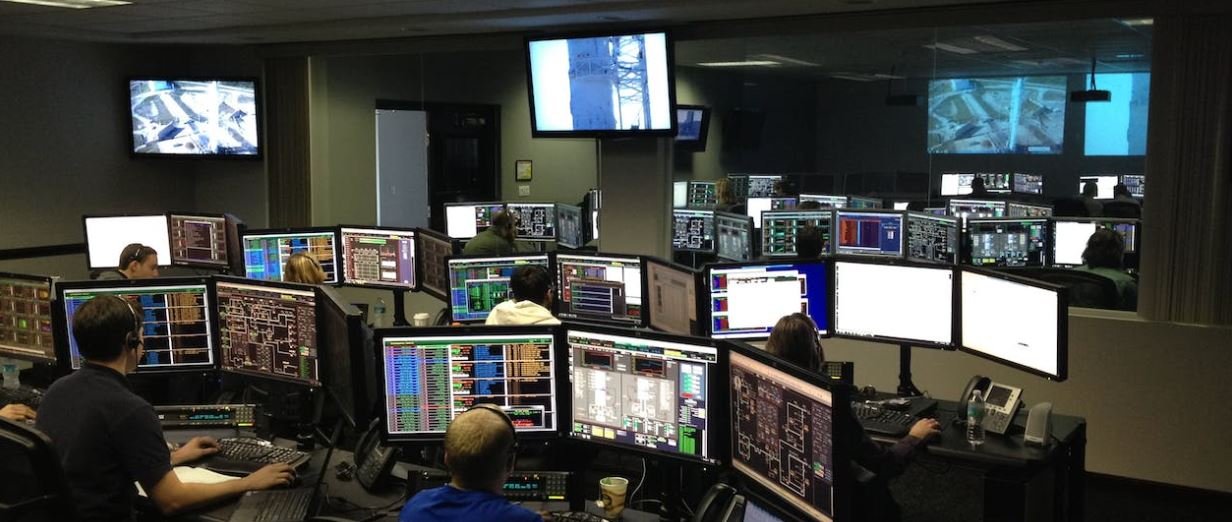AI Application Categories
Artificial Intelligence (AI) is no longer just a concept from science fiction, but a rapidly growing field with practical applications in various industries. From virtual assistants to autonomous vehicles, AI is transforming the way we live and work. AI can be broadly categorized into different application areas based on its functionality and purpose. Understanding these categories can provide insights into the different ways AI is being utilized.
Key Takeaways:
- AI is a rapidly growing field with practical applications.
- AI can be categorized into different application areas based on functionality.
- Understanding AI application categories provides insights into its utilization.
**Natural Language Processing (NLP)** is the branch of AI that focuses on the interaction between computers and humans through natural language. It enables machines to understand and process human language, allowing for tasks such as speech recognition and language translation. NLP is widely used in virtual assistants like **Siri** and **Alexa**.
*NLP enables computers to understand and process human language.*
AI in **Computer Vision** involves the use of computers to extract information from visual sources such as images or videos. It enables machines to “see” and interpret visual data, enabling applications like facial recognition, object detection, and autonomous driving. **Tesla** utilizes computer vision algorithms in its self-driving cars.
*Computer Vision enables machines to “see” and interpret visual data.*
**Machine Learning** is a subset of AI that focuses on creating algorithms capable of learning from and making predictions or decisions based on data. It is used in applications such as recommendation systems and fraud detection. **Netflix** uses machine learning algorithms to provide personalized recommendations to its users.
*Machine Learning algorithms can learn and make predictions based on data.*
AI Application Categories
AI can be further categorized into specific application areas. The following table provides an overview of these categories and their respective examples:
| Category | Examples |
|---|---|
| Natural Language Processing (NLP) | Siri, Alexa, language translation |
| Computer Vision | Facial recognition, object detection, autonomous driving |
| Robotics | Industrial automation, surgical robots |
| Expert Systems | Medical diagnosis systems, credit scoring systems |
| Machine Learning | Recommendation systems, fraud detection |
Data Sets for AI Development
For AI systems to be effective, they require large amounts of high-quality data for training. The availability of suitable data sets is crucial for the development and improvement of AI algorithms. Some popular data sets used in AI development include:
- **ImageNet** – A large image database used for training computer vision algorithms.
- **MNIST** – A dataset of handwritten digits widely used for testing machine learning algorithms.
- **COCO** – A dataset for object detection, segmentation, and captioning tasks.
Current Challenges
While AI has made significant advancements, there are still challenges to overcome. Some of the current challenges in AI development include:
- **Ethical and Privacy Concerns** – The use of AI raises ethical questions regarding privacy, bias, and the potential for misuse.
- **Data Quality and Bias** – AI algorithms heavily rely on data, and if the data is biased, the output will reflect that bias, leading to unfair outcomes.
- **Transparency and Explainability** – The inner workings of AI algorithms can be complex, making it difficult to understand and explain their decisions.
As AI continues to evolve, addressing these challenges will be essential to ensure its responsible and beneficial integration into society.

Common Misconceptions
The Capabilities of AI
One common misconception people have about AI is that it has human-like intelligence and is capable of doing everything a human can do. However, AI is limited to specific tasks and does not possess general intelligence like humans.
- AI is designed to excel in narrow domains.
- AI systems require extensive training and data to perform effectively.
- AI cannot replace human creativity and critical thinking.
The Threat of AI to Jobs
Another misconception is that AI will completely replace humans in the workforce, leading to widespread unemployment. While AI has the potential to automate certain jobs, it also creates new opportunities and roles.
- AI is more likely to augment human capabilities rather than replace them.
- New jobs will be created to manage and develop AI systems.
- AI can enhance productivity and efficiency in various industries.
AI as a Substitute for Human Interaction
Some people believe that AI can replace human interaction in various contexts, such as customer service or therapy. However, AI cannot fully replicate the emotional intelligence and empathy that humans possess.
- AI can assist in certain tasks but cannot replace the need for human connection.
- Human interaction provides a level of understanding and adaptability that AI lacks.
- AI can supplement human interaction, but it cannot replace it entirely.
AI as a Perfect Decision-Maker
Many believe that AI is infallible and makes flawless decisions. However, AI systems are only as accurate as the data they are trained on and can be biased or make errors.
- AI can make biased decisions if the training data is biased.
- AI may struggle in situations with ambiguous or complex information.
- Human oversight and intervention are necessary to ensure AI decisions are ethical and fair.
The Future of AI and its Impact
There are also misconceptions about the future impact of AI, ranging from the belief that AI will take over the world to the belief that it will solve all of humanity’s problems.
- AI development requires careful consideration of ethical and societal implications.
- AI is a tool that can be harnessed for both positive and negative purposes.
- The future impact of AI will depend on how humans choose to develop and use it.

AI Application in Healthcare
With the advancements in artificial intelligence (AI) technology, various applications have emerged across sectors. In the healthcare industry, AI is making significant contributions in improving patient care, diagnostics, and research. The following table highlights some of the key AI applications in healthcare.
| Application | Description |
|---|---|
| Medical Imaging Analysis | AI algorithms analyze medical images for accurate diagnosis and detection of abnormalities. |
| Drug Discovery | AI assists in designing new drugs and predicting their efficacy through virtual screening methods. |
| Patient Monitoring | AI-powered wearables and remote monitoring systems track vital signs and provide real-time health data. |
| Virtual Assistants | AI-based virtual assistants help patients with scheduling appointments, medication reminders, and answering general health queries. |
AI Application in Finance
Finance is another sector that has embraced AI to enhance decision-making, risk assessment, and customer service. Let’s have a look at some interesting AI applications in the finance industry.
| Application | Description |
|---|---|
| Fraud Detection | AI algorithms analyze vast amounts of data to identify and prevent fraudulent activities in financial transactions. |
| Automated Trading | AI systems use predictive models to make trading decisions, optimizing investments and reducing risks. |
| Customer Service | AI-powered chatbots provide personalized support to customers, assisting with inquiries and issue resolution. |
| Credit Scoring | AI algorithms assess creditworthiness by analyzing various factors, improving accuracy in credit decisions. |
AI Application in Education
Education is continuously evolving with the help of AI technologies. From personalized learning experiences to intelligent tutoring, AI is revolutionizing how we educate and learn.
| Application | Description |
|---|---|
| Intelligent Tutoring | AI-powered tutors adapt to individual student needs, providing personalized guidance and feedback. |
| Automated Grading | AI systems grade assignments and exams, saving teachers time and improving consistency. |
| Smart Content | AI-enabled platforms generate interactive and engaging content tailored to students’ learning preferences. |
| Virtual Classrooms | AI-based virtual classrooms offer immersive learning experiences, connecting students from different locations. |
AI Application in Retail
In the competitive retail industry, AI applications play a vital role in improving customer experience, inventory management, and personalized marketing techniques.
| Application | Description |
|---|---|
| Recommendation Systems | AI algorithms analyze customer preferences and behavior to provide personalized product recommendations. |
| Inventory Management | AI predicts demand patterns and optimizes inventory levels, minimizing stockouts and overstock situations. |
| Visual Search | AI-powered visual search allows customers to find products by uploading images, enhancing convenience. |
| Dynamic Pricing | AI algorithms adjust product prices based on demand and other market factors, maximizing profitability. |
AI Application in Transportation
The transportation industry is leveraging the power of AI to improve safety, optimize logistics, and enhance overall efficiency.
| Application | Description |
|---|---|
| Autonomous Vehicles | AI-based self-driving cars use sensors and algorithms to navigate roads and reduce the risk of accidents. |
| Route Optimization | AI algorithms optimize routes based on real-time data to minimize transportation time and fuel consumption. |
| Traffic Management | AI systems analyze traffic patterns to manage congestion, anticipate accidents, and improve traffic flow. |
| Smart Parking | AI-powered parking systems help drivers find available parking spaces, reducing time and congestion. |
AI Application in Agriculture
The agriculture sector is harnessing the potential of AI to increase crop yield, monitor plant health, and optimize farming practices.
| Application | Description |
|---|---|
| Precision Farming | AI technologies analyze data from sensors, satellite imagery, and historical information to guide farming decisions. |
| Plant Disease Detection | AI algorithms identify diseases in plants based on visual analysis, enabling early intervention and preventing crop loss. |
| Robotic Harvesting | AI-powered robots automate the harvesting process, improving efficiency and reducing labor costs. |
| Crop Management | AI systems monitor soil moisture, temperature, and nutrient levels to optimize irrigation and fertilization processes. |
AI Application in Security
AI technology has transformed the field of security by enhancing surveillance, threat detection, and data protection.
| Application | Description |
|---|---|
| Video Analytics | AI-powered video analysis systems automatically identify suspicious activities or objects in surveillance footage. |
| Facial Recognition | AI algorithms analyze facial features to identify individuals, enhancing access control and surveillance capabilities. |
| Cybersecurity | AI systems protect networks and data by detecting and mitigating cyber threats in real-time. |
| Security Drones | AI-enabled drones provide aerial surveillance, monitoring large areas and enhancing security response capabilities. |
AI Application in Entertainment
AI has also found its way into the entertainment industry, revolutionizing content creation, personalized recommendations, and immersive experiences.
| Application | Description |
|---|---|
| Content Generation | AI algorithms can generate engaging and creative content, such as music, artwork, and storytelling. |
| Personalized Recommendations | AI-based recommendation engines suggest movies, music, and shows based on individual preferences and viewing habits. |
| Virtual Reality | AI enhances virtual reality experiences by creating realistic simulations and responsive virtual environments. |
| Emotion Recognition | AI algorithms analyze facial expressions and voice patterns to detect emotions, enhancing interactive entertainment experiences. |
AI Application in Human Resources
AI is transforming the way organizations manage their workforce, streamline recruitment processes, and improve employee engagement.
| Application | Description |
|---|---|
| Resume Screening | AI systems analyze resumes to identify suitable candidates, saving time and improving recruitment efficiency. |
| Employee Engagement | AI-powered platforms collect and analyze employee feedback, providing insights to enhance organizational culture and well-being. |
| Skills Training | AI-based learning platforms offer personalized training programs to employees, targeting skill gaps and career development. |
| Performance Analytics | AI algorithms monitor and analyze employee performance data, providing valuable insights for performance evaluations and rewards. |
In conclusion, AI applications have brought significant advancements and improvements across various industries, revolutionizing processes, and enhancing user experiences. From healthcare to entertainment, finance to agriculture, AI continues to shape our daily lives, offering endless possibilities for innovation and growth.
AI Application Categories – Frequently Asked Questions
Q: What are the different types of AI applications?
A: The different types of AI applications include natural language processing, computer vision, robotics, machine learning, expert systems, and virtual agents.
Q: What is natural language processing?
A: Natural language processing is a branch of AI that focuses on the interaction between computers and human language, enabling machines to understand, interpret, and generate human language in a way that is meaningful and contextually appropriate.
Q: How does computer vision work?
A: Computer vision is an AI technology that enables computers to understand, analyze, and interpret visual information from images or videos. It involves tasks such as object recognition, image classification, image segmentation, and object detection.
Q: What are the applications of robotics in AI?
A: Robotics and AI intersect in various applications such as industrial automation, healthcare assistance, autonomous vehicles, and exploration of hazardous environments. Robotics involves the design, construction, and programming of robots that can perform tasks autonomously or with human assistance.
Q: What is machine learning?
A: Machine learning is a subset of AI that focuses on the development of algorithms and models that enable computers to learn from and make predictions or decisions based on data, without being explicitly programmed for every task.
Q: What are expert systems?
A: Expert systems are AI applications that mimic the decision-making processes of human experts in specific domains. They are designed to provide specialized knowledge, reasoning, and problem-solving capabilities in areas such as medicine, finance, and engineering.
Q: What are virtual agents?
A: Virtual agents, also known as chatbots or virtual assistants, are AI applications that simulate human conversation and interaction. They can be used for customer service, information retrieval, or task automation, among other applications.
Q: How are AI applications impacting healthcare?
A: AI applications in healthcare are revolutionizing the industry by enabling improved diagnosis and treatment planning, personalized medicine, medical image analysis, drug discovery, and patient monitoring.
Q: What are some examples of AI applications in the automotive industry?
A: AI applications in the automotive industry include autonomous vehicles, driver assistance systems, intelligent traffic management, predictive maintenance, and vehicle-to-vehicle communication.
Q: How can businesses benefit from AI applications?
A: Businesses can benefit from AI applications in various ways, including improved efficiency and productivity, better decision-making through data analysis, enhanced customer experiences through personalized recommendations, automation of repetitive tasks, and cost savings.





